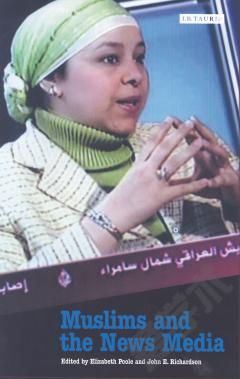The New Arab Journalist
MEDIA The New Arab Journalist: Mission and Identity in a Time of Turmoil, by Lawrence Pintak. London: I.B. Tauris, 2011. 288 pages. $92. There are perhaps three keywords that one can use to describe Lawrence Pintak's new book the New Arab Journalist: read able, generous, and important. The book is highly readable, making it accessible to both academic and non-academic readers. It marries theory and practice(s) of journalism in the Arab region in an admirably rich fashion and lets the reader into an "almost" secret world of privileged information about the state of Journalism in the Arab world. The generosity of the book is the product of the author's invaluable experience as a professional journalist, reporting on the Middle East since 1980. The book is important because it combines theoretical contextualization with good empirical evidence and what I like to call a "hands-on" political economy. It is undoubtedly a very important contribution to the sociology of Arab news. One only hopes that the book (because of its ruthless candidness and sobering effect) won't act as a deterrent to a much younger generation of both Arabs and non-Arabs who aspire to become journalists in the region. A key question posed by the author here is: How do Arab journalists perceive their mission and how do they define themselves? To answer this question Pintak divides the book into two parts: Part One (Chapters 1-7) analyzes the dynamics of Arab journalism within key theoretical and paradigmatic contexts, including a critical and nuanced articulation of the always illusive and slippery category: "objectivity." Part Two (Chapters 8-11) makes use of good empirical research, some of which, conducted by the author, unveils original and extremely important information about Arab journalists' world (concerns); their conception of their profession and that of the "other," as well as their envisaged roles in society. The opening chapters provide an extensive catalogue of power abuses by the Arab ruling elite and exposes, using very good evidence, how their ceaseless and systematic interference stifles press freedom in the region. In the chapter entitled "Islam, Nationalism and the Media," the author provides a brief historical analysis, tracing the complex and fluid relationship between nationalism and Islamism in Arab politics. He uses this exercise to draw the reader's attention to the continuity and manifestation of this complex relationship in Arab media today. Yet, in grappling with such a discursive and complex connectedness, Pintak takes an unexpected epistemic route, using references such as "Islamic Communication" and "Islamic Journalists" in a rather taken-for-granted fashion. This has been tried before by many, including Mowlana et al. who, in their search and hope for an authentic identity, have sought to Islamize all forms of knowledge, including Communication, without much success, since cultures (all cultures) are too complex to be interpreted merely through the prism of religiosity. Furthermore, although Pintak was right to identify Pan-Arabism and Islamism as dominant and continuous discourses in Arab politics, limiting our argumentation to such a polarized binarism alienates other voices in the Arab political spectrum and indeed in contemporary Arab philosophical thought that have been silenced because they never bought into nationalism's exclusive character, nor into the politicization of Islam or, for this matter, the Islamization of everyday life. Still in the same vein, if Arab journalists, as we learn from Pintak's survey, hardly define themselves as Nationalists or Islamists (50% have defined themselves as journalists first, 20% as Arabs and 9% only as Muslims, p. 169), why, then, does the theoretical contextualization, which was meant to provide an academic framework to enable an understanding of the role of journalists in the contemporary Arab world, rely heavily on this binarism? Just in case I am misunderstood, the point of this critique is not to argue that religion is an obsolete analytical category and that, therefore, Pintak was wrong to use it. â¦
{{comment.content}}








 京公网安备 11010802027623号
京公网安备 11010802027623号